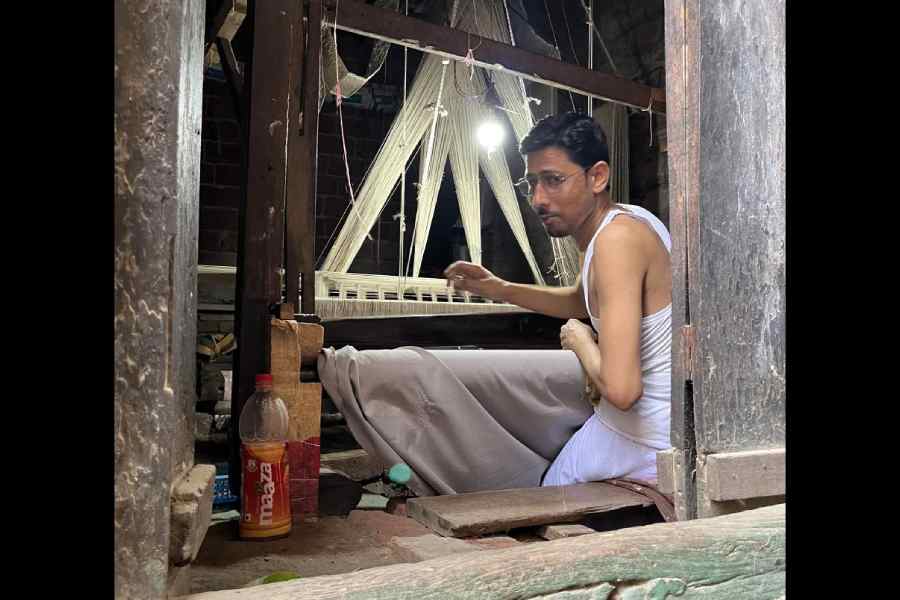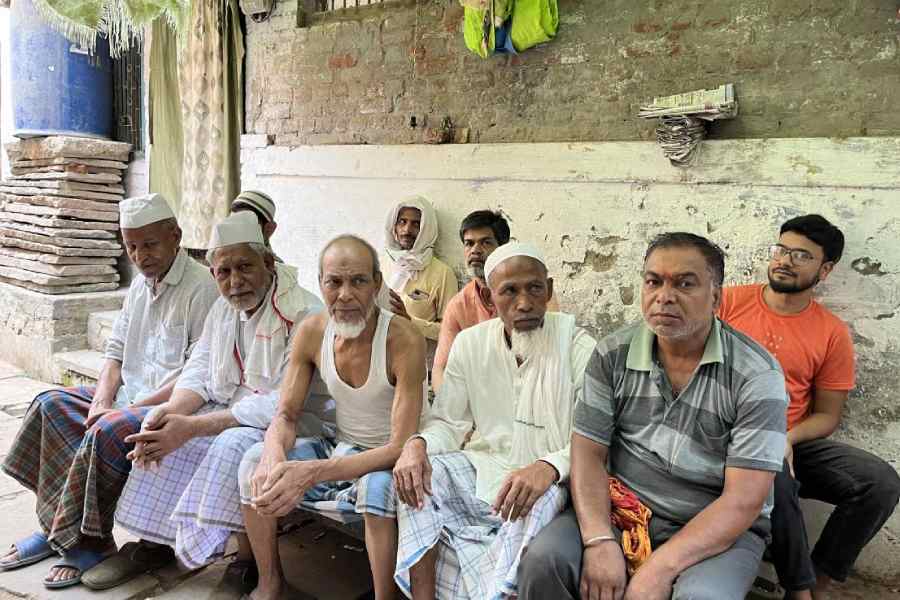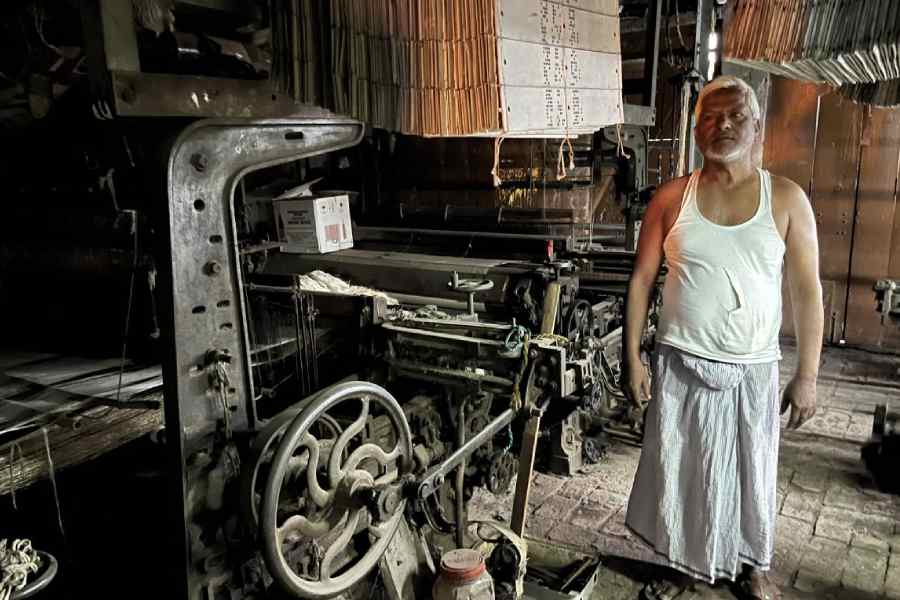THE PM'S CONSTITUENCY: If you wish to hear what a death rattle sounds like, come to the loom labyrinth of Pilikothi in Varanasi. Seven out of 10 looms — both hand and power-driven — have become cold iron carcasses; the rest work no more than a few hours a day and produce way below capacity.
The stretch that churns out some of the finest saris and bolts of silk and zari is wheezing for intensive care. “Hamari toh hawa nikal chuki hai maaniye,” says Aftab Ahmed, one of hundreds of loom shed owners, “saans se saans milana mushkil pad gaya hai (The wind has been knocked out of us, it is tough to link one breath with another).” So saying, he invites us into his small factory at the back. En route, he motions to a set of electricity meters hooked to the wall. There are four — one has been snatched out of the case and returned to the power authorities, one is dead, two are blinking away. “Ab inka bhi number aane wala hai (These will also have to go),” Aftab says.

A craftsman works a handloom in Pilikothi Sankarshan Thakur
We follow him down a narrow corridor to a box of a room at the back, the windows all shuttered, the roof low, the lighting dim — Aftab’s workstation, what puts bread on the family table. His sons are at work on two mechanised looms, six of the rest look like installation art, machines that would once work like machines.
What happened?
It’s the same story all of Pilikothi’s loom owners and workers will tell you.
What’s hit them goes much beyond the fall in market demand for the sari and silk-zari material (for lehengas, shararas, ghararas and such), or even their inability to compete with inferior but far cheaper competition from suppliers in places like Surat. “They cannot match our quality, nor the traditional finesse of our craftsmen, but they are popular because they are light and cheap, zamaana hi badal gaya (The times have changed).” Aftab’s tone is beyond rueful. “And what shall we say, the government’s policies haven’t exactly helped, they’ve broken the back of this trade,” he adds.
The Adityanath government in Uttar Pradesh withdrew the power subsidy the loom traders used to get. The cost of running each machine went up from ₹75 a few years ago to ₹165; but it didn’t stop there. The power bill per machine per month today is ₹860, even though they run far fewer hours than earlier.

Moinuddin (second from left) and Raj Kumar Upadhyay (extreme right), along with loom owners and workers, huddle in Varanasi's Pilikothi to bemoan the decline of their craft and trade. Sankarshan Thakur
The traders also quote changes in the MSME regulations that now stipulate that every transaction should be finished — from delivery of material to payment — within 45 days. “This has played havoc with our traditional way of operating,” says Kalimurrahman, another trader in Dulligarahi, in the heart of the meandering Pilikothi maze. “We had a much more flexible system earlier where we would supply saris and materials to retail traders, and they would pay us bit by bit, as convenient, or give us IOUs. They got more time to pay, we kept getting money in bits, both parties were able to work with convenience. Now this 45-day limit means that when we go ask for money, which we have to, they very often return the material they bought because they aren’t able to pay the whole amount and close the deal. It’s a nonsensical rule that suits neither us nor the sari traders in the bazaar.”
In a narrow lane that calls itself Barwa Talay (under the banyan), we found loom owners and workers gathered, shaded from the belligerent sun, fanning themselves, mostly silent. We asked if they were taking a break and Moinuddin, an elder among them, revealed a benign smile: “There is little to take a break from, there is no work, we have looms but we are more like the unemployed.”
Have they put their problems to the government? Mild of manner, Moinuddin smiled and splayed his palms. “Hamari kahan sunwaai hai? Kaun poochhta hai? (Who listens to us, or even asks)?” said a younger man sitting behind him on the wooden chowki and spat out the paan juice marinating in his mouth.
It was almost time to ask that question we had come looking for answers to in Pilikothi: “Do you sense that these past years your vote has been wasted?” Moinuddin looked me in the eye, smiled while he mulled his reply. “Why does one vote? For a better life, for better conditions, for free air to live in, for being able to say what one wants to say. Most of all, because it is our right. That right we will continue to exercise. No matter what. Hamara haq hai. And let me tell you humbly, there is a time for everything, and that time comes to an end sometime.”
PS: As we were closing our conversation in the relative cool of Barwa Talay, a mild ripple of excitement took the gathering. A man, bulging bag in hand, sweating from all pores, arrived in our midst and said with a sigh: “Koi hamari bhi sun lo! (Somebody listen to me too!)”. Everyone had a convivial laugh. Raj Kumar Upadhyay is a routine and welcome presence in Barwa Talay, a wandering salesman of gas lighters, flimsy torches, bottle openers and such odds and ends. “My fate is linked to the fate of these looms,” he said. “If they have money, I sell my goods, if they don’t, we’ll just look at my state.”
Moinuddin had ordered a round of tea in the meantime, and Upadhyay was among the chosen ones to get a sip.










